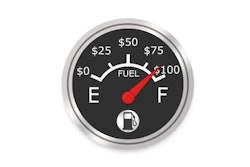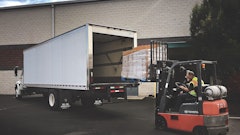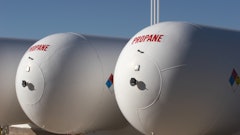
The U.S. food industry, which relies heavily on trucking to get product to its distributors and end consumers, is in a great position right now to influence the environmental sustainability of the industry by enthusiastically supporting the adoption of strong truck fuel efficiency and greenhouse gas standards. Substantial financial, as well as environmental, benefits would result.
It is expected that the Obama Administration will announce a new round of these standards in the coming weeks. A comment period will follow the release of the proposal. This is a critical opportunity to underscore the long-term business and environmental gains that result from robust, cost-effective standards. Your voice will count.
We have an urgent need for deploying fuel efficiency technologies. Heavy trucks account for six percent of U.S. global warming emissions, and are the single fastest growing end-use source of emissions—on pace to add nearly 120 million more tons annually over the coming years.
Existing fuel efficiency standards went into effect in 2014 and run through 2018. They will increase the fuel efficiency of tractor-trailers to an average of 7.0 mpg, up from 5.8 mpg in 2010. These standards will reduce the lifecycle cost of new trucks by $42 billion dollars, delivering significant value to manufacturers, trucking companies and freight shippers.
We have the technology today to build on this successful program and deliver more efficiency improvements. The Environmental Defense Fund (EDF) is calling for a second phase of heavy truck efficiency standards that would result in new tractor-trailers achieving 10.7 mpg, reducing fuel consumption by 46 percent compared to 2010 levels.
Such a move would have a positive impact across the spectrum.
A bold standard would drastically reduce fossil fuel consumption and greenhouse gas emissions from heavy trucks and move the U.S. toward a more energy-independent future.
Fuel efficiency is good for the food shipper’s bottom line, too. Fuel has long been the single largest operating cost for trucks, accounting for nearly 40 percent of per-mile cost. A bold miles-per-gallon standard would significantly lower lifecycle costs, and reduce per-mile freight costs by 21 cents a mile. For a large food shipper with 50,000,000 annual truckload miles in distribution, that translates to $11.5 million in annual savings—pure profit—by 2030.
For trucking companies, more fuel-efficient standards would further improve their environmental footprint and increase access to high-quality, affordable equipment. These more fuel-efficient tractor-trailers would reduce exposure to fuel price volatility and appeal to freight customers’ increasing preference for sustainable partners and practices.
Technology is not an obstacle to moving forward. In fact, many of the solutions that could be used to meet strong standards have already been adopted, such as automated manual transmissions. Others, such as waste-heat recovery, are at advanced stages of development.
Leveraging this technology, Super Truck projects from leading manufacturers, including Cummins and Peterbilt, and Daimler Trucks North America, are demonstrating trucks capable of delivering 10.7 mpg and 12.2 mpg, respectfully. Wabash National unveiled a new trailer aerodynamic product that can boost fuel efficiency by 9 percent through this technology alone.
The progress we’ve made has resulted, in part, from standards that challenged the industry to address freight’s growing contribution to greenhouse gas emissions. We know robust fuel efficiency programs can work. Truck sales reached record levels in 2014, bolstered by the more efficient equipment available and the owners’ and operators’ enthusiasm for it.
Setting a bold standard will help companies reduce both their costs and carbon risks, while delivering benefits for communities' air quality and the climate.
How does your company push for a better outcome? Weigh-in for strong standards during the comment period this summer and/or attend a hearing on the proposal. To keep up to date on the status of the proposal, feel free to email me at [email protected].
Meanwhile, of course, there’s always an opportunity to improve the sustainability of your logistics operations—whether it’s rejigging your distribution network to maximize full truckloads, or making the most of backhaul opportunities, or even collaborating with other shippers to see if you can share transportation networks in a way that saves both of you money. Freight operations can become a model for sustainable business, and we urge you to remember that you have the power to influence the future.
Jason Mathers is senior manager of supply chain logistics at Environmental Defense Fund, where he leads the EDF Green Freight initiative. He works with some of the world’s largest companies to improve the bottom line and cut fuel consumption associated with freight movement.




















